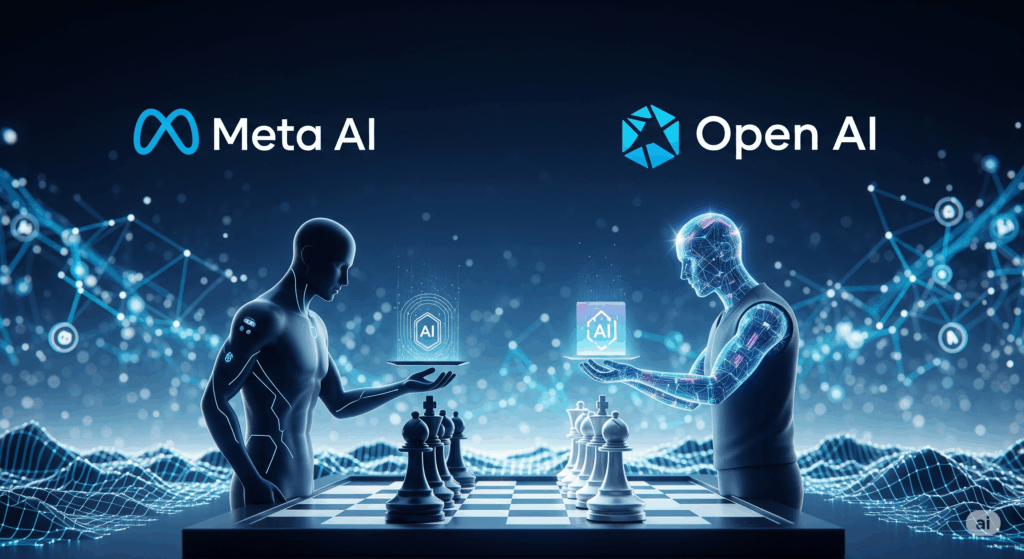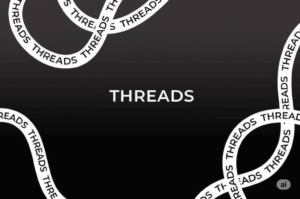It’s no secret that the world of artificial intelligence is heating up. Companies are racing to develop the next groundbreaking AI, and at the heart of this frantic innovation lies a fierce competition for the brightest minds. In a move that’s sent ripples across the tech industry, Meta has reportedly poached three key OpenAI researchers, igniting fresh debate about the ongoing AI talent war. This isn’t just a simple hiring spree; it’s a strategic maneuver with significant implications for the future of AI development.
The Unfolding Drama: A Battle for Brains
Imagine a high-stakes chess match where the pieces are brilliant scientists and engineers, and the ultimate prize is dominance in the most transformative technology of our time. That’s essentially what we’re witnessing in the competitive AI landscape. The recent news of Meta poaching OpenAI talent has truly underscored this intense competition. While neither company has officially confirmed the specific details of the deals, reports suggest that the offers were substantial, highlighting the immense value placed on these individuals. This latest development follows a period of heightened activity in Big Tech hiring for AI roles, as companies scramble to staff their ambitious AI initiatives.
But why the sudden flurry of OpenAI departures to Meta? It’s a question many are asking. It seems to boil down to a confluence of factors, including attractive compensation packages, the allure of Meta’s bold new AI vision, and perhaps even some internal dynamics within OpenAI itself. The AI talent shortage is real, and companies are pulling out all the stops to secure the expertise they need.
Diving Deeper into Meta’s Playbook: A Superintelligence Strategy?
So, what’s Meta’s game plan here? It’s clear that Meta’s AI strategy is an aggressive one. Reports suggest that these new hires are specifically joining Meta’s “superintelligence” research efforts. Mark Zuckerberg has been vocal about his ambition to build artificial general intelligence (AGI) that surpasses human cognitive abilities. To achieve such a lofty goal, Meta needs nothing short of the very best AI researcher jobs filled by the top talent in the field.
This isn’t just about developing consumer-facing AI products; it’s about pushing the boundaries of what’s possible. Meta AI hiring seems to be highly targeted, focusing on individuals with expertise in cutting-edge areas of AI research. This strategic acquisition of top AI researchers from a leading competitor like OpenAI signals a significant acceleration of Meta’s long-term AI roadmap. They’re clearly betting big on these new additions to propel their research forward.
The Ripple Effect: What This Means for the AI Industry
The movement of AI researchers between industry giants has a tangible impact on the broader AI industry trends. When experienced minds shift companies, they bring with them not just their individual expertise, but also their accumulated knowledge, research methodologies, and even their networks. This can certainly create a knowledge transfer, potentially accelerating progress at the acquiring company while creating a temporary vacuum at the one losing talent.
For other companies in the competitive AI landscape, these high-profile moves serve as a stark reminder of the escalating AI talent war. It forces everyone to re-evaluate their own tech talent acquisition strategies, compensation structures, and research environments. We might see a further increase in salaries and benefits for AI researcher jobs, as companies fight tooth and nail to attract and retain their talent.
Moreover, this phenomenon could influence the direction of artificial intelligence news itself. As these highly skilled individuals move, their new projects and breakthroughs will undoubtedly make headlines, shaping the public perception and understanding of AI’s rapid advancements. It’s an exciting, albeit sometimes dizzying, time to be following the AI space.
Retaining the Best: A Challenge for All
While Meta’s aggressive hiring might seem like a win for them, it also highlights a significant challenge for companies like OpenAI: retention. Keeping hold of your best and brightest in such a hot market is incredibly difficult. Factors beyond just salary, like research freedom, access to computational resources, company culture, and the opportunity to work on truly impactful projects, become crucial.
This isn’t just about throwing money at people; it’s about creating an environment where AI researchers feel valued, challenged, and empowered to do their best work. Companies that can foster such an environment will have a significant advantage in this ongoing battle for AI talent. It’s a complex equation, and the industry is still figuring out the optimal balance.
Looking Ahead: The Future of AI’s Power Players
The Meta OpenAI researchers story is more than just a headline; it’s a clear indicator of the intensity of the AI talent war and the immense stakes involved. As AI continues to evolve at an astonishing pace, the companies that can consistently attract, nurture, and retain the best AI research talent will ultimately shape the future of this transformative technology.
We’re in an era where human ingenuity, powered by incredible AI systems, is poised to redefine industries and change our daily lives. The strategic moves in AI hiring, particularly by tech titans like Meta, are fascinating to watch, and they offer a glimpse into the ambitious visions driving the next wave of artificial intelligence innovation. It’s a race, for sure, but it’s also a collaborative effort in its own way, as breakthroughs made by one team inevitably influence and inspire others. The future of AI is being built by these brilliant minds, and the competition to host them is only going to get more intense.







